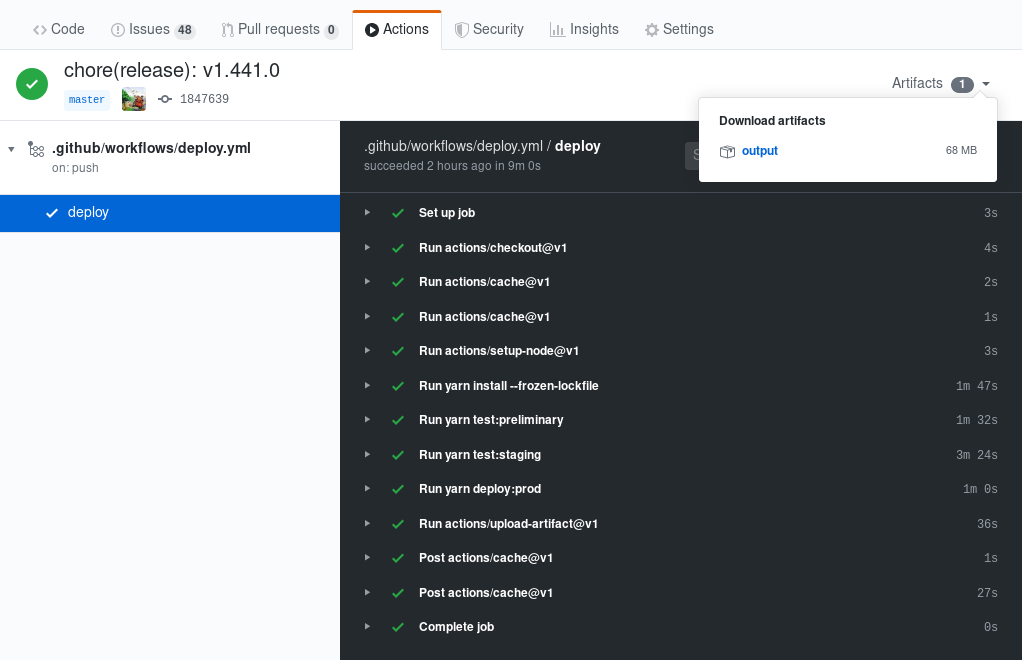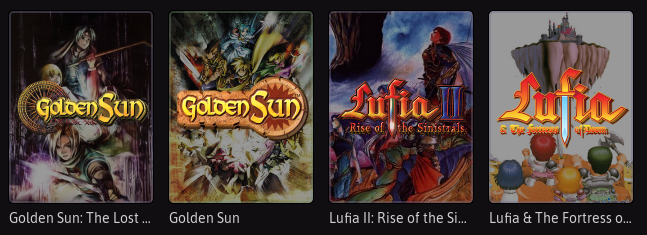Weekly Report: 4th November 2019
Automating FrontierNav
In last week's update, I briefly mentioned automating FrontierNav's deployments. Well, this week I went ahead with it. Why? The main reason is that I'm working towards moving FrontierNav's workflow completely off my workstation. If I want others to contribute, even myself, I don't really want access to my personal computer to be a requirement.
Eventually, everything should be available from FrontierNav's web client. That's the broader goal. Currently, I'm focusing on data entry and I'll have more to share on that next week.

GitHub Actions
GitHub Actions is GitHub's new automation offering. It's currently in preview, though it's due to be released this month. It's very much minimal viable product, but their strategy has worked. For me, at least.
I was originally planning to move to GitLab and use their automation service, but I didn't realise that they don't provide runners. I'm expected to provision those myself. CircleCI is another offering that does provide runners but having to share a pipeline between multiple third parties was a turn off.
So GitHub Actions was the obvious solution. Both my code and pipelines in one convenient place. It wasn't easy. There were a few issues, especially related to caching between builds. But it's done.
Testing Babel
Babel 7.7 was released this week and I upgraded FrontierNav to use it. This time round, instead of upgrading and hoping the integration tests pick up any broken changes, I decided to test Babel separately using snapshots.
I don't know why I didn't do this to begin with. With snapshots, I'm able to test each transformation Babel performs, making it clear why Babel is configured the way it is. It also catches any regressions and potential errors introduced by Babel without having to dig through layers of Webpack transformations.
Considering Ansible
My server has gotten to a point now where I have a good reason to use Ansible. I used Puppet extensively before, but it's extremely heavy for a handful of servers and Ansible seems a lot simpler.
I would much rather move to a "serverless" solution like AWS S3 but my current server plan is a lot cheaper and predictable. So I'm in no rush.
Once thing I did notice about these provisioning tools is that they really make it hard to find their documentation. I don't blame them. Paying for support is probably how they can afford to create these tools in the first place. However, it was a constant annoyance during my research phase.
More Games
I've added more games to FrontierNav. Right now that's kind of pointless, but it keeps me motivated. One of the reasons I'm creating FrontierNav is because I've always wanted to make a website for the games I enjoy. A sort of tribute.
In the late 90s and 00s when I was gradually exposed to the worldwide web, I always came across fan sites and I wanted to make my own. It's a shame this trend has slowed down with the introduction of the popular web (popweb). It's one of the reasons I started my "World Wide Wanderer" series, though I haven't updated it much.

Fan Sites
Of the games I added were Lufia and Lufia II. Though I was too young to fully appreciate them at the time, they left a massive impression on me, especially the soundtrack. The fan sites surrounding them have of course gone quiet as the series died off, some have been lost forever.
GameFAQs seems to be the best place to find communities for these older games, which is somewhat boring since the site is very uniform and not much of a tribute to the games they host. This is a common trend in popweb and one I want FrontierNav to avoid going down. This is why I introduced more games, so that the platform has the features to present them properly rather than retro-fitting them later. While theming isn't a priority now, it will be once there's data to warrant it.
Preservation
It's nice that GameFAQs is keeping an historical catalog of guides and walkthroughs written by fans. However, these documents would be better placed in non-profits like Internet Archive; outside of commercial interests and the risks that come with it.
Thanks for reading.